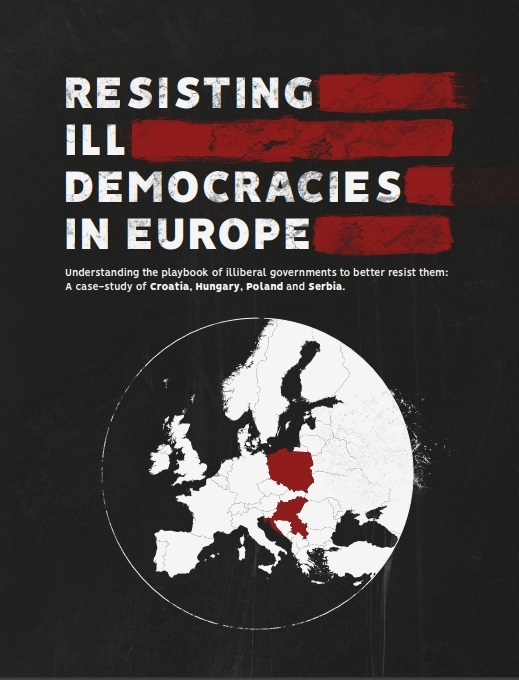Coming at a crucial time for civil society and democracy, the authors identify the main trends within ill democracies, and offer practices and strategies for civil society to resist.

The case study finds and documents that illiberal governments threaten the very structural elements of functioning democracies, transforming what were successful democratic countries into democracies that are sick.
It draws on the first-hand information and research provided by non-governmental organisations (NGOs) from the four countries, benefitting from their diverse national perspectives and different realities. It is published by the Centre for Peace Studies (Croatia), Helsinki Foundation for Human Rights (Poland), Hungarian Civil Liberties Union, Hungarian Helsinki Committee, Yucom – Lawyers’ Committee for Human Rights (Serbia), Human Rights House Zagreb, and Human Rights House Foundation.